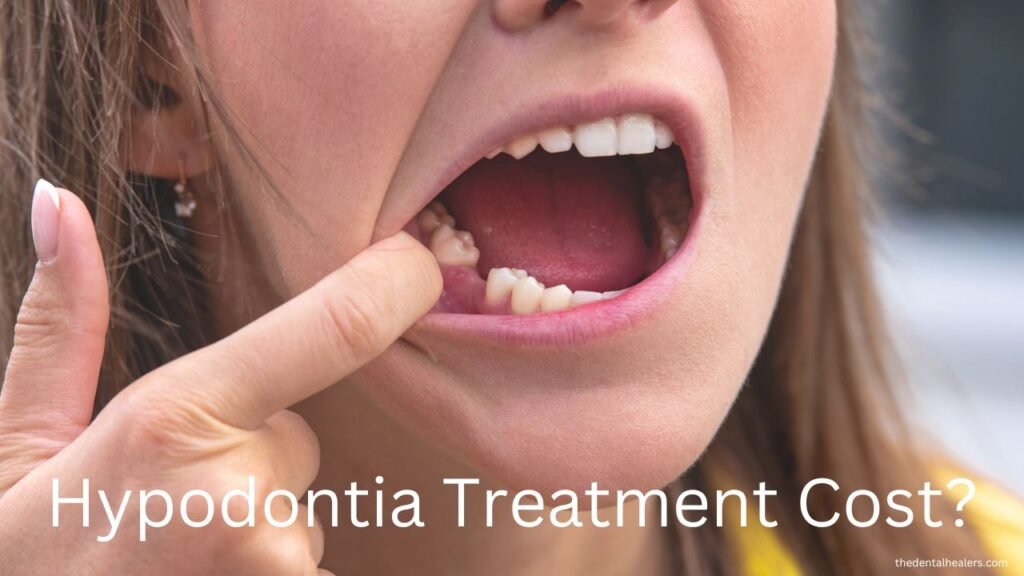Are you wondering how much it would cost to treat missing teeth due to hypodontia?

We’ve got you covered! This article explores the factors affecting hypodontia treatment costs and provides average cost ranges for common treatment options.
Understanding Hypodontia Treatment Costs
Hypodontia, the condition of missing teeth, requires various treatments depending on individual cases. These treatments can be costly, and it’s important to know what to expect. Here’s a breakdown of average costs for common hypodontia treatments:
Average Costs for Hypodontia Treatments
| Treatment Approach | Cost Range | Factors Influencing Cost |
|---|---|---|
| Dental Implants | $3,000 – $6,000 per implant | Number of implants needed, material used |
| Fixed Dental Bridge | $1,500 – $5,000 per tooth | Type of bridge, materials, additional procedures |
| Removable Partial Denture | $700 – $2,500 per appliance | Material quality, design complexity |
| Orthodontic Treatment | $3,000 – $7,000 or more | Type of braces or aligners, treatment duration |
| Dental Crowns | $800 – $3,000 per crown | Material, location of the tooth, additional procedures |
| Bone Grafting | $400 – $3,000 per graft | Severity, type of graft material |
Note: These are general cost ranges. Actual costs may vary, so consult a dental professional for an accurate assessment based on your specific needs.
See also: How Much Does Oligodontia Treatment Cost?
Hypodontia (Missing Teeth) Explained
Hypodontia, also known as missing teeth, is when one or more permanent teeth are absent. The treatment depends on the individual case, including:
Treatment Options for Hypodontia
- Orthodontic Treatment: Used to close spaces from missing teeth and align remaining teeth. Helps create sufficient space for future tooth replacement.
- Dental Bridges: Prosthetic devices that replace missing teeth by attaching artificial teeth to adjacent natural teeth or dental implants.
- Dentures: Removable appliances that replace multiple missing teeth. They can be partial or complete, providing a cost-effective option.
- Dental Implants: Permanent solution involving surgically inserting a titanium post into the jawbone. A crown is placed on top to replace the missing tooth.
- Space Maintenance: Used for primary teeth (baby teeth) when permanent teeth haven’t erupted yet. Maintains space and prevents movement of adjacent teeth.
The specific treatment plan will depend on factors like the number and position of missing teeth, age, and overall oral health.
Consult a dentist or orthodontist to determine the best treatment option.
Factors Affecting Hypodontia Treatment Costs
Several factors influence the cost of hypodontia treatment:
- Number and Location of Missing Teeth: More missing teeth mean higher costs. The location can also affect the type of treatment needed.
- Material Quality: High-quality materials for implants, bridges, or dentures can increase costs.
- Complexity of the Case: More complex cases require more extensive treatment plans.
- Additional Procedures: Bone grafting or other preparatory procedures can add to the overall cost.
- Geographic Location: Costs can vary significantly based on where you live and the local cost of living.
Does Dental Insurance Cover Hypodontia Treatment?
Dental insurance coverage for hypodontia treatments varies. Some plans cover a portion of the costs for procedures like dental implants, bridges, or dentures, while others may not. It’s essential to review your insurance policy and discuss options with your insurance provider and dental professional.
Treatment Duration
The duration of hypodontia treatment depends on the severity and specific treatment plan. It can range from several months to a few years, often involving orthodontic treatment followed by restorative procedures.
Consult with a dentist or orthodontist for a more accurate estimate.
Safety and Side Effects of Hypodontia Treatment
Hypodontia treatments are generally safe but can have some side effects:
- Orthodontic Treatment: May cause discomfort or pain, temporary gum irritation, and increased plaque accumulation.
- Dental Implants: Possible pain, swelling, bruising, and rare complications like nerve damage or implant failure.
- Dentures: Initial discomfort, difficulty speaking/eating, and potential gum irritation.
Consult with a dental professional to understand the risks and benefits of your treatment plan.
Conclusion
Hypodontia treatment costs vary based on several factors, including the number of missing teeth and the specific treatment approach. Personalized treatment plans and consultations with dental professionals are crucial for determining the most appropriate options.
For more information or to explore treatment options, consult your dentist. Stay proactive with regular check-ups and good oral hygiene to maintain the health of any dental restorations.
Ready to explore your options for treating hypodontia? Consult with a dental professional today to find the best solution for you!